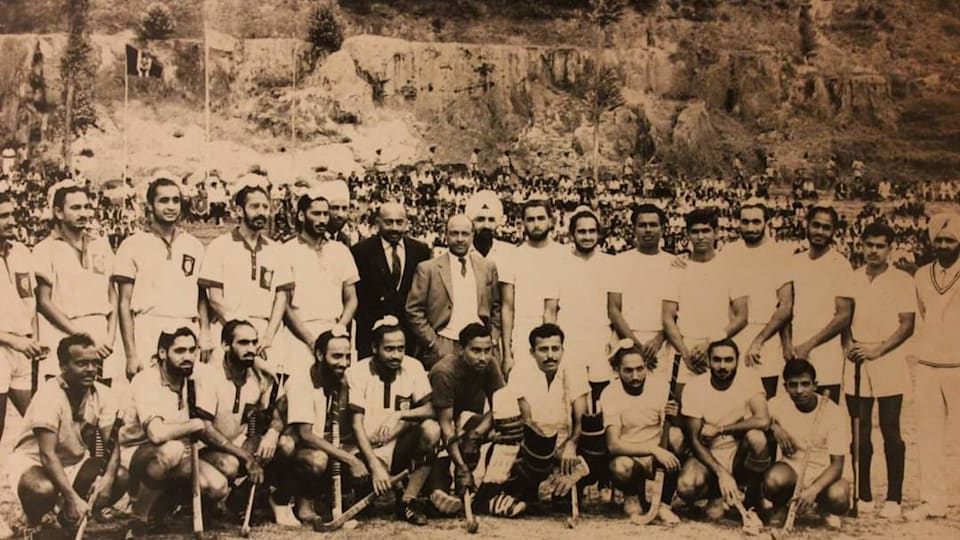
During their early days, India were the undisputed king of field hockey. With gold medals at every Olympic Games, the Indian hockey team was the most respected side in the world.
But this changed as the game started spreading its wings in Europe and Asia from the late 1950s.
While India’s stranglehold continued for a few more years as they won a silver medal at the 1960 Olympics and regained their crown four years later in Tokyo, the Mexico 1968 Olympics marked the first major step in the shift in power.
On the face of it, though India’s build-up to the Mexico 1968 Games looked on track, a closer look revealed some serious issues troubling the Indian hockey team as the Olympics drew closer.
Having beaten Pakistan for the 1966 Asian Games gold in Bangkok, the quality in the Indian hockey team was unquestionable. With three to four players available to play for each position, India looked destined to retain their Olympic gold.
This included as many as three Balbir Singhs’ in the squad. The unique blend though didn’t create any confusion as they featured together only in the bronze-medal play-off.
Moreover, the 1968 Games in Mexico City was special for Sansarpur, a village in Punjab, with as many as seven players from the hamlet competing at the Games. While two of the Balbir Singhs’ along with Jasjit Singh, Tarsem Singh and Ajit Pal Singh featured for the Indian hockey team, Jagjit Singh and Harvinder Singh represented Kenya.
Joint captains for Indian hockey team
But problems arose after the Indian Hockey Federation’s (IHF) decision to appoint the experienced Prithipal Singh as the captain of the Olympic-bound side didn’t go well with the team.
With Gurbux Singh leading India for the majority of the Olympic cycle, the team was divided following the national federation’s decision to snub the full-back just ahead of the Games.
The Pakistan-born Gurbux Singh didn’t sit quietly and made his disappointment public. This forced IHF to name joint-captains for the Olympics for the first time in the team’s history.
The rift, however, had a deep impact on the team spirit which was evident in the way India performed at the Games. Add to this the complacency that set in following the Asian Games triumph, the Indian hockey team was in for some serious test at the 1968 Summer Olympics.
Up against New Zealand in the opener, the Indian hockey team got off to a disappointing start, losing its first-ever game in the group stage of the Olympics.
Shaken by the result, the team soon got its act together and recorded back-to-back wins to top the group and made it to the semi-finals.
Though the team spent enough time ahead of the Olympics in the Nilgiris, a high-altitude region in South India, preparing for the geographical shift in Mexico City, their performance was far from convincing.
The only match that India dominated was against hosts Mexico as they pummelled the debutants 8-0 and against Spain, they won 1-0 but only after goalkeeper Muneer Sait stopped a whopping 12 penalty corners.
“And we did not have face masks or chest pads those days,” Muneer Sait told Sportstar.
Meanwhile, their tie against Japan was awarded to the Indians 5-0 following the Japanese walkout in protest of a penalty stroke awarded against them in the 55th minute.
Only a bronze for India
The weakness in the Indian team was thoroughly exploited by Australia in the semi-final. Having played India in the past, the Aussies tweaked their gameplan to frustrate the Indian hockey team and force them into making mistakes.
And India played into the Australian trap as they let their opponents find openings at will and threaten the Indian goal. This proved costly for the side as Australia -- who came into the Games as the top-ranked team -- clinched the match in extra time to make it to the maiden final. It relegated India to the bronze medal playoff match for the first time.
Hurt by their semi-final loss, the Indian hockey team came out roaring in the play-off to beat West Germany 2-1 to return home with the bronze medal.
“We could only win the bronze,” Muneer Sait summed up. “This remains my biggest disappointment.”
Pakistan won the gold medal after they beat Australia 2-1 in the 1968 Olympic hockey final to become champions for the second time at the Games.
1968 Olympics Indian hockey team: Prithipal Singh (captain), Rajendran Christie, Krishnamurty Perumal, John Peter, Inam-ur Rahman, Munir Sait, Ajit Pal Singh, Balbir Singh (Services), Balbir Singh (Railways), Balbir Singh (Punjab), Gurbux Singh, Harbinder Singh, Harmik Singh, Inder Singh, Tarsem Singh, Dharam Singh, Jagjit Singh.
